Aug . 15, 2025 01:00 Back to list
Welded Wire Mesh for Industry: Factory Supplier of Quality Mesh
In the intricate landscape of modern industrial infrastructure, the integrity and performance of foundational materials are paramount. Among these, welded wire mesh for industry factory applications stands out as a critical component, offering unparalleled versatility, strength, and durability across a myriad of sectors. From reinforcing concrete structures to creating secure enclosures and sophisticated filtration systems, the demand for high-quality welded wire mesh continues to escalate, driven by advancements in manufacturing processes and stringent global industry standards. This comprehensive guide delves into the core aspects of industrial-grade welded wire mesh, exploring its technological evolution, diverse applications, and the strategic considerations for selecting a reliable supplier. Understanding the nuances of its production, the technical specifications it must meet, and its long-term benefits is essential for any industrial decision-maker aiming to optimize operational efficiency and ensure structural integrity within their facilities.
The selection of appropriate materials is a cornerstone of robust industrial design, directly impacting safety, longevity, and cost-effectiveness. The industrial environment often presents challenges such as extreme temperatures, corrosive agents, and high mechanical stresses, necessitating materials that can withstand these demanding conditions without compromise. This introductory section lays the groundwork for understanding why welded wire mesh has become indispensable in sectors ranging from petrochemical and construction to agriculture and energy. We will provide an in-depth analysis of its manufacturing journey, the stringent quality controls it undergoes, and its performance characteristics that contribute to enhanced operational sustainability and reduced maintenance overheads. This article aims to equip professionals with the knowledge needed to make informed procurement decisions that align with both current project requirements and future industrial growth.
The Advanced Manufacturing Process of Industrial Welded Wire Mesh
The production of industrial-grade welded wire mesh for industry factory applications is a sophisticated process that begins with the careful selection of raw materials, typically high-quality steel wire, which can be low carbon, stainless steel, or galvanized. The journey commences with wire drawing, where steel rods are pulled through a series of dies to achieve the desired wire gauge, ranging from fine to heavy. This step is critical as it dictates the tensile strength and overall integrity of the finished product. Following wire drawing, the wires undergo a meticulous cleaning process to remove any impurities that could compromise the weld quality or corrosion resistance. For applications requiring enhanced durability, hot-dip galvanization is a common post-drawing treatment, providing a robust zinc coating that offers superior protection against rust and environmental degradation.
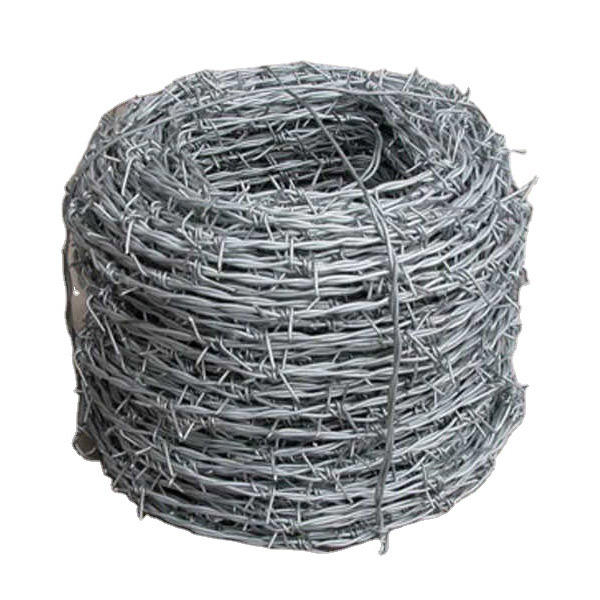
The core of the manufacturing process involves precision welding. Automated welding machines, often employing resistance welding technology, meticulously join longitudinal and transverse wires at their intersections. This creates a uniform grid pattern with consistent aperture sizes. The quality of these welds is paramount; each joint must exhibit high shear strength to prevent separation under stress. Modern facilities leverage advanced CNC (Computer Numerical Control) systems to ensure precise wire spacing and optimal weld parameters, minimizing human error and maximizing production efficiency. Post-welding, the mesh may undergo further processing such as cutting to specific dimensions, bending, or additional surface treatments like PVC coating for specific environmental demands. Adherence to international standards such as ISO 9001 for quality management and ASTM A185/A497 for steel wire mesh is non-negotiable, ensuring that every batch of industrial welded wire mesh meets rigorous performance benchmarks for applications in sectors like petrochemical and metallurgy.
Rigorous quality control measures are integrated throughout the entire manufacturing process. From raw material inspection to final product verification, comprehensive testing protocols are implemented. This includes visual inspections for uniformity and defects, measurement of wire gauge and mesh dimensions, and mechanical tests such as tensile strength tests and shear strength tests on individual welds. Salt spray tests are conducted on galvanized or coated mesh to assess corrosion resistance over time, mimicking harsh industrial environments. These stringent checks ensure that the finished product, whether it's for water treatment, mining, or agricultural applications, possesses the specified structural integrity, longevity, and resistance to environmental factors, guaranteeing a predictable service life that often extends beyond decades under optimal conditions.
Key Technical Parameters and Specifications
When specifying welded wire mesh for industry factory projects, a thorough understanding of key technical parameters is crucial to ensure optimal performance and compliance with engineering requirements. These parameters define the mesh's physical characteristics and its suitability for various demanding applications. Wire diameter, for instance, significantly impacts the mesh's strength and load-bearing capacity; typically ranging from 0.5mm (24 gauge) for light-duty applications to over 6mm (3 gauge) for heavy-duty structural reinforcement. Mesh aperture, or the size of the openings, is equally vital, determining the flow rate in filtration systems or the maximum particle size allowed to pass. Common apertures can range from 6mm x 6mm for fine screening to 100mm x 100mm for larger structural uses.
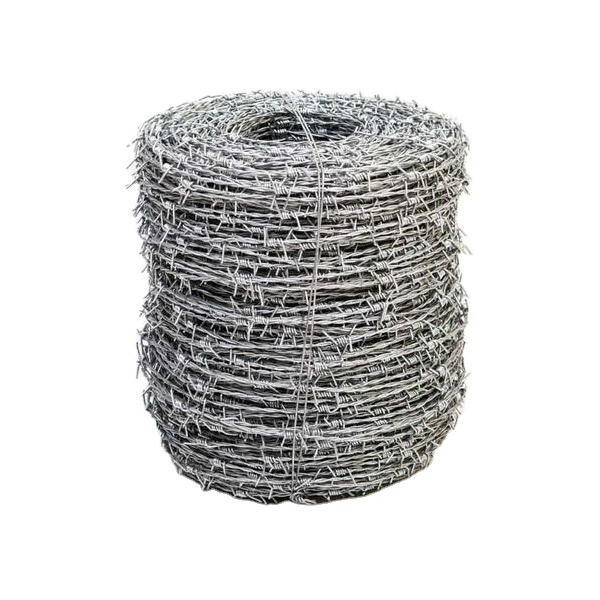
Material composition is another critical factor. Options include low carbon steel (for general purpose and cost-effectiveness), stainless steel (for superior corrosion resistance in chemical or marine environments), and galvanized steel (for enhanced rust protection). The type of galvanization, whether electro-galvanized or hot-dip galvanized, also influences corrosion resistance and longevity. Hot-dip galvanization typically offers a thicker, more durable zinc coating. Furthermore, the tensile strength of the wire, measured in MPa, indicates its resistance to breaking under tension, a vital characteristic for load-bearing structures. For example, a common industrial mesh might feature a tensile strength of 550 MPa. These specifications are often guided by standards like ASTM A740 for carbon steel wire mesh and ASTM A276 for stainless steel, ensuring a consistent quality benchmark across welded wire mesh for industry manufacturers.
Typical Welded Wire Mesh Parameters for Industrial Use
| Parameter | Typical Range for Industrial Use | Relevant Standard/Impact |
|---|---|---|
| Wire Diameter | 1.0 mm - 6.0 mm (19 SWG - 3 SWG) | ASTM A185 (Steel), Load Bearing Capacity |
| Mesh Aperture | 12.5x12.5 mm to 100x100 mm | Filtration, Security, Reinforcement Specificity |
| Material | Low Carbon Steel, Galvanized Steel, SS304, SS316 | Corrosion Resistance, Strength, Cost |
| Tensile Strength | 480 - 700 MPa (for carbon steel) | ASTM A82, Structural Integrity |
| Coating Type | Hot-Dip Galvanized, Electro-Galvanized, PVC Coated | Corrosion Protection, Aesthetic, Chemical Resistance |
| Roll/Panel Width | 0.5 m to 3.0 m | Installation Efficiency, Project Scale |
Understanding these parameters enables industrial buyers to precisely match product specifications with application demands, whether it's for heavy-duty concrete reinforcement in civil engineering projects, secure perimeter fencing for manufacturing plants, or precise screening in water treatment facilities. The choice of material and coating, for example, directly influences the mesh's lifespan in corrosive environments, highlighting the importance of tailored solutions. Reputable welded wire mesh for industry suppliers often provide detailed data sheets and certification, like ISO 14001 for environmental management, to support these technical specifications, ensuring that clients receive products that not only perform but also comply with industry best practices and regulatory requirements.
Diverse Application Scenarios and Technical Advantages
The robust design and customizable properties of welded wire mesh for industry factories lend themselves to an extensive array of applications across various industrial sectors. In the construction industry, it is indispensable for reinforcing concrete slabs, walls, and foundations, significantly enhancing structural integrity and reducing cracking due to thermal expansion or ground movement. Its pre-fabricated nature accelerates construction timelines and reduces labor costs compared to traditional rebar tying. In the realm of security, welded wire mesh forms robust perimeter fencing, machine guards, and storage cages, offering formidable deterrence against intrusion and protecting personnel from operational hazards. Its uniform mesh pattern provides excellent visibility while maintaining high security levels, a crucial aspect for ensuring safety and operational oversight in busy industrial environments.
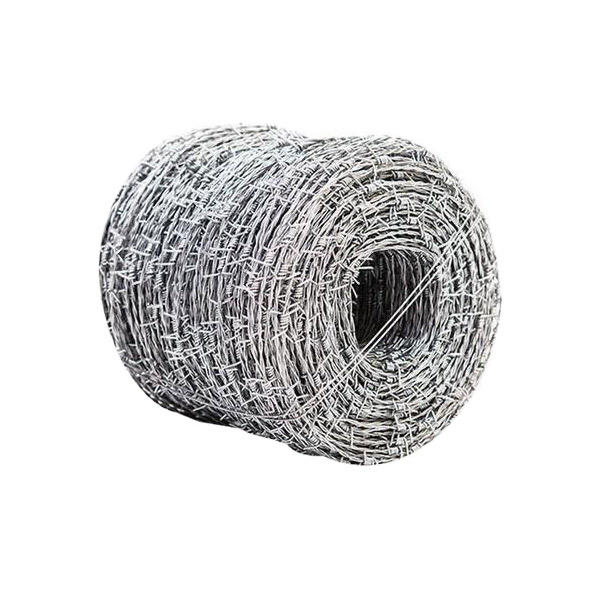
Beyond construction and security, welded wire mesh for industry supplier products find critical roles in filtration, agriculture, and animal husbandry. In filtration systems, fine mesh screens are utilized for waste water treatment, air purification, and industrial fluid processing, ensuring the removal of particulates and contributing to environmental compliance and process efficiency. For agricultural use, it is widely employed for animal enclosures, trellising for crops, and pest control, offering a durable and cost-effective solution. The galvanized brick coil wire mesh masonry factory also relies on specific mesh types for reinforcing masonry structures, preventing crack propagation and enhancing the overall stability of brickwork, particularly in seismic zones or high-stress areas.
The technical advantages of industrial welded wire mesh are multifaceted. Its pre-fabricated nature ensures consistent quality and reduces on-site labor requirements, leading to faster project completion and reduced overall costs. The precise welding process guarantees strong, uniform connections, translating to superior tensile and shear strength compared to manually tied rebar. When treated with hot-dip galvanization or PVC coating, the mesh exhibits exceptional corrosion resistance, significantly extending its service life even in harsh industrial environments like petrochemical plants or coastal facilities. This longevity minimizes replacement cycles and associated downtime, leading to substantial long-term savings. Furthermore, its adaptability in terms of wire gauge, aperture size, and material type allows for tailored solutions that meet precise operational demands, ensuring optimal performance and safety across a vast spectrum of industrial applications, making it a truly versatile and economically beneficial investment.
Choosing a Reliable Welded Wire Mesh Manufacturer: A Comparative Approach
Selecting the right welded wire mesh for industry manufacturer is a strategic decision that directly impacts project success and long-term operational costs. Key factors to consider include the manufacturer's adherence to international quality standards such as ISO 9001, their production capacity, and their ability to provide comprehensive technical support. A reputable manufacturer will demonstrate transparent quality control processes, from raw material sourcing to final product testing, often evidenced by certifications and detailed quality assurance reports. Furthermore, a strong track record of serving diverse industrial clients and positive customer feedback are reliable indicators of their experience and reliability.
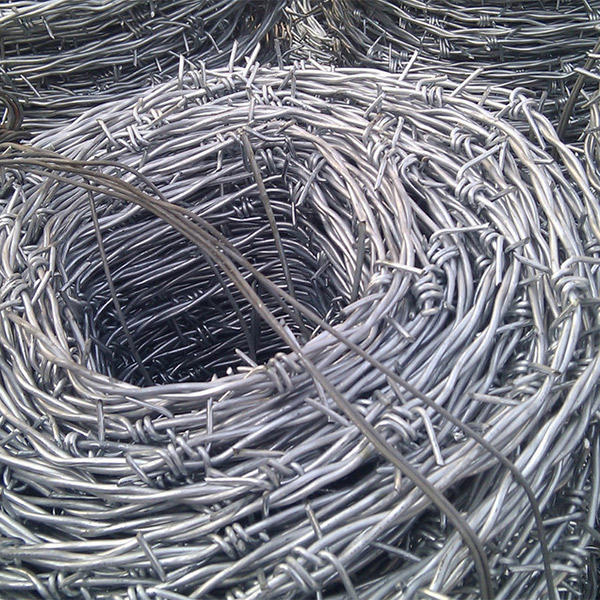
Key Considerations for Manufacturer Selection
- • Certification & Compliance: Verify certifications like ISO 9001 (Quality Management), ISO 14001 (Environmental Management), and adherence to specific industry standards (e.g., ASTM, ANSI, BS). This assures consistent quality and responsible manufacturing practices.
- • Material Traceability: A reliable manufacturer can trace the origin and quality of their raw materials, ensuring that the base steel meets stringent specifications, which is vital for the integrity of the finished welded wire mesh for industry factories.
- • Customization Capabilities: Assess their ability to produce mesh tailored to specific dimensions, wire gauges, aperture sizes, and finishes (e.g., hot-dip galvanized, PVC coated) to meet unique project requirements.
- • Testing and QA Protocols: Inquire about their in-house testing facilities and quality assurance procedures, including tensile strength tests, weld shear strength tests, and corrosion resistance tests (e.g., salt spray tests).
- • Delivery and Logistics: Evaluate their supply chain efficiency, lead times, and ability to handle large orders and ensure timely delivery, which is critical for maintaining project schedules.
- • Technical Support and After-Sales Service: Access to expert technical advice and responsive customer support for installation guidance, troubleshooting, and addressing any post-delivery concerns.
While cost is a factor, prioritizing quality and reliability over the lowest price can prevent costly failures and reworks in the long run. Engaging with manufacturers that have a proven track record in supplying materials for complex industrial projects, such as those involving galvanized brick coil wire mesh masonry factories, demonstrates their capacity to meet demanding specifications. By focusing on these critical aspects, industrial buyers can forge strong, reliable partnerships that ensure the consistent supply of high-performance welded wire mesh, contributing significantly to the structural integrity and longevity of their industrial assets.
Customization and Application Case Studies
The inherent flexibility in the manufacturing of welded wire mesh for industry factories allows for extensive customization, enabling it to meet the precise and often unique demands of diverse industrial applications. Customization options typically include variations in wire diameter, mesh opening size, material grade (e.g., specific stainless steel alloys like SS316L for chemical resistance), panel dimensions, and surface treatments. For example, a client requiring mesh for a highly corrosive environment, such as a chemical processing plant, might specify a SS316L grade stainless steel mesh with an electro-polished finish for enhanced passivation and resistance to pitting corrosion. Conversely, a large-scale mining operation might require heavy gauge, hot-dip galvanized mesh in large rolls for rockfall prevention, prioritizing sheer strength and longevity in abrasive conditions.

Real-World Application Examples:
- • Case Study 1: Large-Scale Infrastructure Project (Hydroelectric Dam)
A major civil engineering firm required over 500,000 square meters of high-tensile welded wire mesh for industry manufacturers to reinforce concrete spillways and foundations of a new hydroelectric dam. The mesh needed to withstand extreme hydrostatic pressures and cyclic fatigue. Our solution involved supplying custom-fabricated mesh panels from 6mm carbon steel wire, hot-dip galvanized post-welding, with a unique 50x50mm aperture, ensuring superior bond with concrete and enhanced resistance to the harsh, damp environment. The pre-cut and pre-bent panels significantly reduced installation time by 30%, contributing to the project’s ahead-of-schedule completion. - • Case Study 2: Chemical Processing Facility (Corrosion Resistance)
A leading chemical manufacturer faced challenges with premature mesh degradation in their filtration systems, due to exposure to aggressive acids and alkalis. After consulting with their engineers, we provided a custom-engineered SS316L welded wire mesh for industry factory with a precise 2mm x 2mm aperture for fine particulate filtration. The advanced alloy composition and specialized passivation treatment extended the mesh's lifespan by over 500% compared to previous materials, drastically reducing maintenance downtime and replacement costs, showcasing the benefits of tailored solutions. - • Case Study 3: Data Center Security (Perimeter Fencing)
A global tech giant needed ultra-secure perimeter fencing for a new data center. Standard fencing was insufficient. We engineered a robust galvanized brick coil wire mesh masonry factory-grade welded mesh system, featuring 4.0mm heavy-gauge galvanized wire with a small, anti-climb aperture (12.7mm x 76.2mm). The panels were designed for integration with electronic security systems, providing superior resistance to cutting and climbing attempts, thus enhancing the overall physical security posture of the critical infrastructure.
These cases underscore the importance of collaborating with a manufacturer capable of not just producing standard mesh but also innovating and tailoring solutions to meet highly specific performance criteria. The ability to provide customized welded wire mesh, whether it's specific roll lengths for logistical ease, unique coating thicknesses for extreme environments, or specialized mesh configurations for precise filtration, translates directly into optimized project outcomes, superior asset protection, and enhanced operational longevity for industrial clients.
Trustworthiness: FAQs, Delivery & Quality Assurance
Building trust with industrial clients requires more than just high-quality products; it demands transparency, reliability, and robust support systems. For welded wire mesh for industry suppliers, this translates into clear communication regarding product specifications, transparent manufacturing processes, and dependable after-sales services. Understanding common client queries and proactively addressing concerns about product longevity, compliance, and delivery logistics are crucial elements in establishing long-term partnerships within the B2B sector.
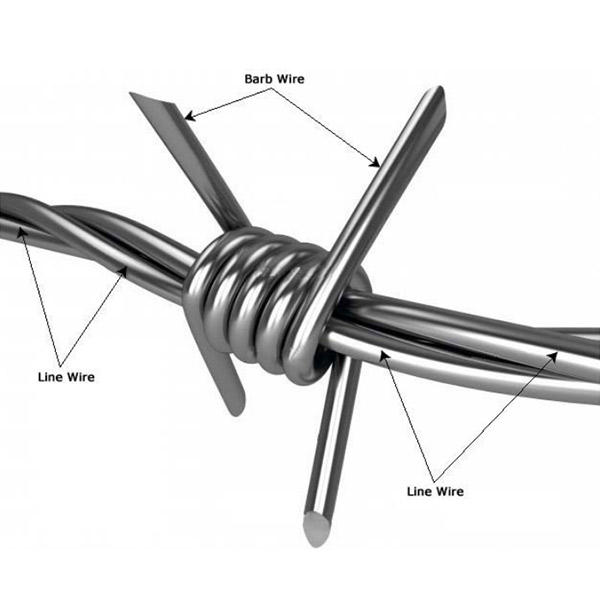
Frequently Asked Questions (FAQs)
- Q: What is the typical lead time for custom orders of industrial welded wire mesh?
A: Lead times vary based on order volume, material availability, and complexity of customization. For standard specifications, delivery usually ranges from 2-4 weeks. For highly specialized orders, it may extend to 6-8 weeks, with detailed production schedules provided upfront. - Q: Do you provide material certification and test reports for your welded wire mesh?
A: Absolutely. Every shipment of our industrial welded wire mesh is accompanied by comprehensive material certification (MTC) and relevant test reports (e.g., tensile strength, weld shear strength, zinc coating thickness). We adhere strictly to ISO and ASTM standards, ensuring full traceability and verified quality. - Q: What is your warranty policy for industrial welded wire mesh?
A: We offer a comprehensive warranty covering manufacturing defects and material integrity for a period of up to 5-10 years, depending on the product type and application environment. Our commitment is to client satisfaction and long-term product performance. - Q: How do you ensure precise delivery and minimize transit damage?
A: We employ robust packaging solutions, including heavy-duty pallets and protective wrapping, tailored to the specific mesh form (rolls or panels). Our logistics partners are carefully vetted for their expertise in handling industrial materials, and we provide real-time tracking for larger orders, ensuring secure and timely delivery to your site.
Quality Assurance & Client Support
Our commitment to quality assurance extends beyond product manufacturing. We maintain an ISO 9001 certified quality management system, ensuring every stage from raw material procurement to dispatch meets stringent international standards. Our dedicated technical support team is available to assist with product selection, technical queries, installation guidance, and troubleshooting, ensuring seamless integration of our galvanized brick coil wire mesh masonry manufacturers products into your projects. This holistic approach to client support underpins our reputation as a trusted partner for industrial solutions worldwide.
Industry Trends and Future Outlook for Welded Wire Mesh
The industrial landscape for welded wire mesh for industry factory applications is continuously evolving, driven by technological advancements, increasing environmental regulations, and a growing demand for sustainable and high-performance materials. A significant trend is the increasing adoption of automated and AI-driven manufacturing processes, which enhance precision, reduce waste, and improve production efficiency. This leads to higher quality mesh products with tighter tolerances, essential for demanding sectors like aerospace and advanced manufacturing. Another key trend is the development of advanced material alloys and composite coatings that offer superior corrosion resistance, fire resistance, and enhanced durability, extending the lifespan of mesh in extreme operating conditions.
The push towards green building and sustainable infrastructure development is also influencing the market. Manufacturers are increasingly focusing on producing mesh from recycled steel and implementing energy-efficient production methods, reducing the carbon footprint associated with manufacturing. This resonates particularly with environmentally conscious galvanized brick coil wire mesh masonry factories and construction firms seeking to achieve LEED certification or similar sustainability benchmarks. Furthermore, the integration of mesh products with smart technologies, such as embedded sensors for structural health monitoring or RFID tags for supply chain management, is on the horizon, promising even greater efficiency and predictive maintenance capabilities for industrial assets.
Looking ahead, the demand for specialized welded wire mesh is expected to grow in emerging sectors like renewable energy (e.g., wind turbine foundations, solar panel supports), advanced robotics, and intelligent logistics. The continuous innovation in material science and manufacturing technology will further broaden the application scope of this versatile material. As industries strive for greater resilience, efficiency, and sustainability, the role of high-performance welded wire mesh, supported by reliable welded wire mesh for industry suppliers committed to quality and innovation, will undoubtedly remain pivotal in shaping the industrial landscapes of tomorrow.
Conclusion
The enduring significance of high-quality welded wire mesh for industry factory operations cannot be overstated. Its foundational role in construction, security, and specialized industrial processes underscores its versatile utility and inherent technical advantages. From precise manufacturing adhering to global standards like ISO and ASTM, to its application in enhancing structural integrity and providing robust filtration solutions, welded wire mesh is a cornerstone material for modern industrial development. The careful selection of a manufacturer, based on their expertise, commitment to quality, and ability to provide customized solutions, is paramount for securing optimal project outcomes and long-term operational efficiency. As industries continue to evolve, embracing new technologies and sustainable practices, the innovation in welded wire mesh production will continue to meet and exceed the demanding requirements of a dynamic global industrial landscape, ensuring safety, durability, and economic viability.
References
- American Society for Testing and Materials (ASTM). Various standards for steel wire and wire mesh, e.g., ASTM A185, A497, A740, A276.
- International Organization for Standardization (ISO). ISO 9001 Quality Management Systems, ISO 14001 Environmental Management Systems.
- Concrete Reinforcing Steel Institute (CRSI). Manual of Standard Practice for Reinforcing Steel.
- The Galvanizers Association. Technical information on hot-dip galvanizing processes and applications.
- Journal of Materials Science and Engineering. Peer-reviewed articles on advanced material properties and applications.
-
Chain Link Fence-Durable&Versatile|Anping County Puersen
NewsAug.15,2025
-
Welded Wire Mesh for Industry: Factory Supplier of Quality Mesh
NewsAug.15,2025
-
Chain Link Fence - Anping County Puersen Hardware Wire Mesh Products Co., Ltd.|Durable, Versatile, Reliable Fencing Solution
NewsAug.14,2025
-
Chain Link Fence - Anping County Puersen|Durable&Versatile
NewsAug.14,2025
-
Chain Link Fence: Durable & Versatile Solutions | Anping County Puersen
NewsAug.14,2025
-
Chain Link Fence-Durable Versatile Reliable|Anping County Puersen Hardware Wire Mesh Products Co., Ltd.
NewsAug.14,2025

